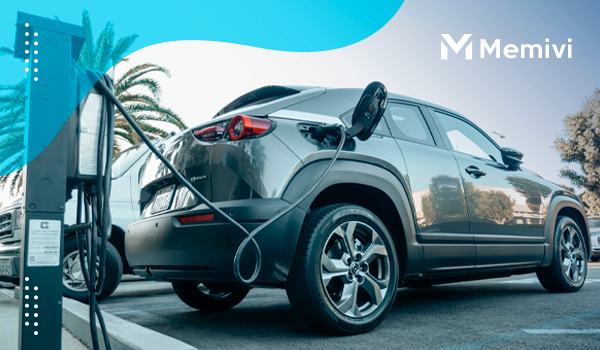
These innovative technologies are not just transforming transportation but are also offering significant savings in costs, energy, and resources. By exploring the different ways batteries can help with economic efficiency, you’ll discover their potential to improve not just your finances but also the health of the planet. Read on as we delve into how electric car battery technology works, the cost-saving benefits, and future innovations that promise even greater advancements.
Understanding Electric Car Battery Technology
Electric car battery technology is a rapidly evolving field that plays a crucial role in the performance and sustainability of electric vehicles (EVs). These batteries are primarily lithium-ion based, known for their high energy density and long lifespan. Understanding how these batteries work can help individuals make informed decisions about purchasing EVs and how they can contribute to cost savings.
Battery components include the cathode, anode, separator, and electrolyte, each contributing to the efficient storage and release of energy. By comprehending the internal chemistry, consumers can appreciate the reasons behind the various battery life and charging capabilities of different models. Knowledge about these elements also aids in maintaining and optimizing battery performance over time.
An important aspect of electric car batteries is their ability to regenerate energy through processes like regenerative braking, which converts kinetic energy back into stored electrical power. This process is a key feature that contributes to the overall efficiency of EVs by reducing the need for frequent charging and extending driving range.
Moreover, the development of battery technology includes innovations to improve charging speeds and energy capacity. Understanding these advancements allows potential buyers to weigh the benefits of reduced charging times and increased driving range, further enhancing the cost-effectiveness of owning an electric vehicle.
Finally, battery technology is not only about the current capabilities but also about future potential. Researchers are continually working on next-generation batteries, like solid-state and graphene-based designs, which promise even greater efficiency and lower costs. These advancements could significantly impact both the automotive industry and consumer expenses, promoting a more sustainable and economical transportation solution.
Cost-saving Benefits of Electric Car Batteries
Electric car batteries offer significant cost-saving benefits over time. Although the initial purchase price of an electric vehicle (EV) might be higher than that of a traditional gasoline car, the long-term savings can be substantial. One of the
primary factors
in these savings is the lower cost of charging compared to fueling a gasoline car. Electricity costs are generally lower than fuel, especially when charging during off-peak hours or using renewable energy sources.
Furthermore, maintenance costs for electric cars are typically lower because of fewer moving parts. EVs do not require oil changes, have fewer parts that can wear out, and often come with extensive warranties on the battery and powertrain. This reduction in maintenance needs represents additional savings for EV owners.
Tax incentives and rebates provided by governments to promote sustainable transportation can also help offset the initial purchase price of electric cars, leading to further economic benefits for the consumer. Many regions offer perks such as reduced registration fees, access to HOV lanes, and reduced tolls.
The efficiency of electric car batteries continues to improve, making them even more economical. Advances in battery technology increase the range of EVs, reduce the need for frequent charging, and extend the lifespan of the battery, which all contribute to lowering the overall cost of ownership. This continuous innovation ensures that electric vehicles remain a cost-effective choice for consumers over the lifetime of the vehicle.
Environmental Impact and Economic Advantages

Electric car batteries offer significant environmental benefits. Unlike traditional combustion engines, these vehicles produce zero tailpipe emissions, helping reduce air pollution and greenhouse gases. This reduction in emissions is crucial for mitigating climate change and improving public health.
Economic advantages also play a vital role. Electric vehicles (EVs) typically have lower operating costs compared to gasoline-powered cars. This is due to the lower cost of electricity versus gasoline, as well as fewer moving parts in EVs, which leads to reduced maintenance costs.
Furthermore, many regions provide incentives and tax breaks for EV owners, making them financially attractive. These could include purchase rebates, lower vehicle registration fees, and carpool lane access, all contributing to overall savings.
In terms of resource usage, while the production of lithium-ion batteries has an environmental impact, advancements in recycling technology are mitigating these concerns. Improved recycling processes reduce the need for new raw materials, lessen environmental damage, and enhance the lifecycle of existing resources.
Investing in electric vehicles not only supports a sustainable future but can also result in long-term economic savings. As technology grows and market demand increases, we can expect to see further improvements in both areas, amplifying these advantages.
Future Innovations in Battery Efficiency
The realm of future innovations in battery efficiency promises transformative developments in the way electric car batteries are designed and utilized. Future advancements are poised to bring revolutionary changes, not just in the enhancement of range and performance, but also in cost-effectiveness and sustainability.
The introduction of solid-state batteries is a primary driver of innovation, aiming to improve energy density, reduce charging times, and extend the overall lifespan of batteries. These batteries are expected to offer safer alternatives to liquid electrolytes, minimizing risks of overheating and extending the operational range of electric vehicles.
Furthermore, the pursuit of using recyclable materials in the production of batteries will promote sustainable practices. The ongoing research into using abundant materials such as sodium or magnesium instead of lithium could not only reduce costs but also minimize environmental impact.
Another exciting area is the development of smart battery management systems that can optimize energy usage and health. These systems use advanced algorithms and machine learning to provide real-time diagnostics and predictive analytics. This innovation facilitates more efficient charging cycles and prolongs the battery’s life, ensuring more sustainable use.
Furthermore, breakthroughs in wireless charging technology are set to create more convenience for EV users. Innovations in inductive charging technologies mean that future generations of electric vehicles could charge while being driven or parked, eliminating downtime and significantly enhancing the user experience.
As these technologies continue to evolve, they will reduce dependency on non-renewable resources. This progress could lead to significantly decreased production costs, thereby allowing more consumers to enjoy the benefits of electric driving without compromised efficiency or high costs.



 Demystifying the UK’s ‘Great Wealth Transfer’: What It Means for Young People. <p class='sec-title' style='line-height: normal; font-weight: normal;font-size: 16px !important; text-align: left;margin-top: 8px;margin-bottom: 0px !important;'> Demystifying the UK's 'Great Wealth Transfer' reveals its impact on future generations. </p>
Demystifying the UK’s ‘Great Wealth Transfer’: What It Means for Young People. <p class='sec-title' style='line-height: normal; font-weight: normal;font-size: 16px !important; text-align: left;margin-top: 8px;margin-bottom: 0px !important;'> Demystifying the UK's 'Great Wealth Transfer' reveals its impact on future generations. </p>  Understanding Your UK Credit File: What’s on It and How to Fix Errors. <p class='sec-title' style='line-height: normal; font-weight: normal;font-size: 16px !important; text-align: left;margin-top: 8px;margin-bottom: 0px !important;'> Learning the ins and outs of a UK credit file will help you make informed financial decisions. </p>
Understanding Your UK Credit File: What’s on It and How to Fix Errors. <p class='sec-title' style='line-height: normal; font-weight: normal;font-size: 16px !important; text-align: left;margin-top: 8px;margin-bottom: 0px !important;'> Learning the ins and outs of a UK credit file will help you make informed financial decisions. </p>  The UK’s Cost of Education: A Breakdown of School Fees and Saving for the Future. <p class='sec-title' style='line-height: normal; font-weight: normal;font-size: 16px !important; text-align: left;margin-top: 8px;margin-bottom: 0px !important;'> In this article, we will delve into various aspects of educational costs in the UK, offering insights into tuition, living expenses, and potential financial aid options. </p>
The UK’s Cost of Education: A Breakdown of School Fees and Saving for the Future. <p class='sec-title' style='line-height: normal; font-weight: normal;font-size: 16px !important; text-align: left;margin-top: 8px;margin-bottom: 0px !important;'> In this article, we will delve into various aspects of educational costs in the UK, offering insights into tuition, living expenses, and potential financial aid options. </p>